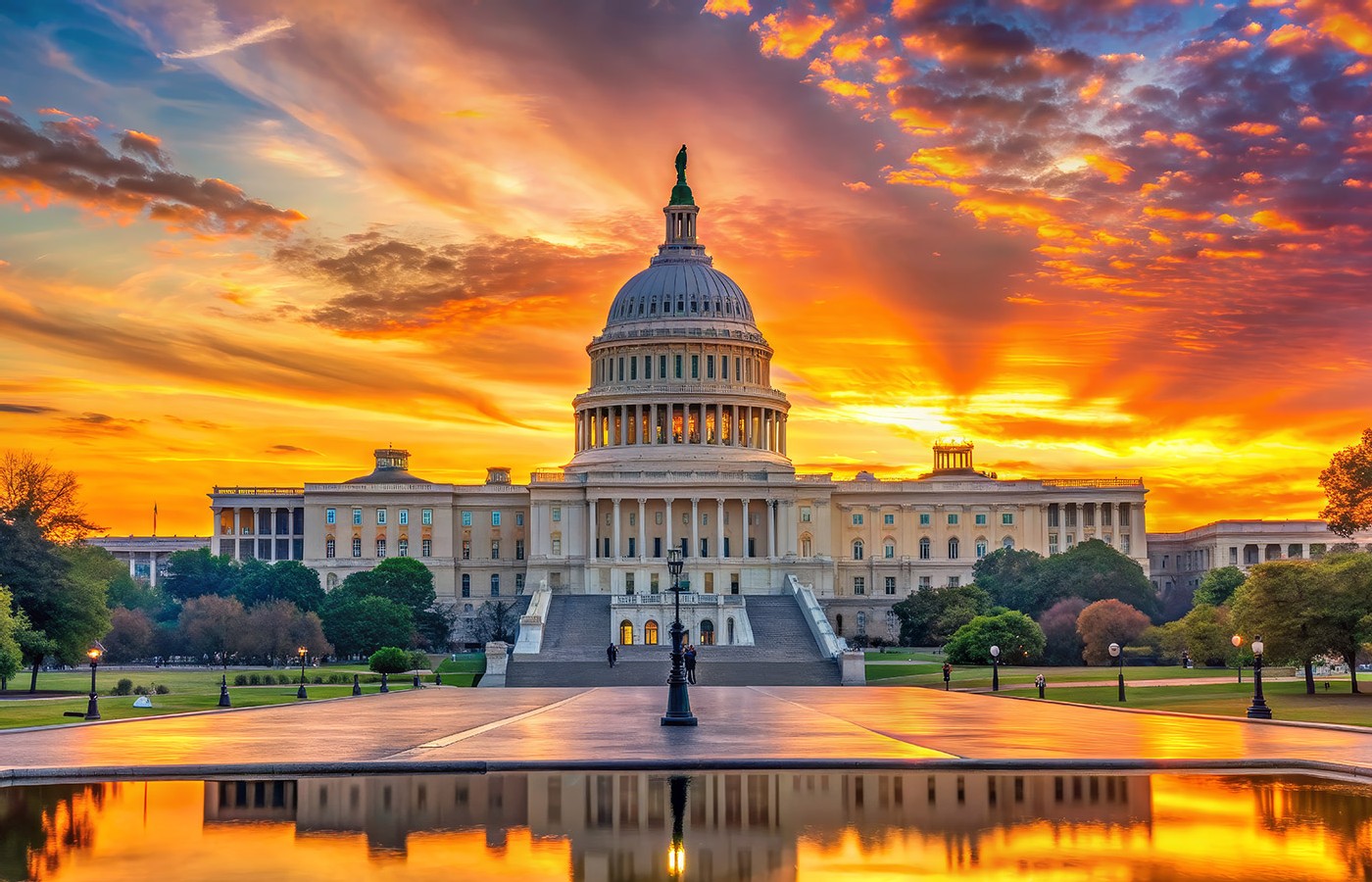The most important relationship I seek to nurture in the treatment room is the one a patient has with their own body. We live in a culture that teaches us to override pain, defer to outside authority, and push through discomfort. Patients often arrive hoping I can “fix” them, but the truth is, we can’t do the work for them. We can offer guidance, insight and support, but healing requires their full participation.
On Point: ASA Hosts Acupuncture for Public Servants Event
- The American Society of Acupuncturists (ASA) is proud to share the results from our 2025 Acupuncture for our Public Servants (AOPS) event that took place on Capitol Hill.
- A team of 27 licensed acupuncturists and students provided acupuncture treatments to approximately 120 congressional staff while educating them on H.R. 1667, the Acupuncture for Our Seniors Act.
- According to a follow-up survey, 100% of our respondents had a positive experience and are now more inclined to advocate for increased access to acupuncture.
Editor’s Note: Article submitted by the ASA-NCCAOM Advocacy Committee.
The American Society of Acupuncturists (ASA) is proud to share the results from our 2025 Acupuncture for our Public Servants (AOPS) event that took place on Capitol Hill. On Monday, April 28, a team of 27 licensed acupuncturists and students from the Virginia University of Integrative Medicine provided acupuncture treatments to approximately 120 congressional staff while educating them on H.R. 1667, the Acupuncture for Our Seniors Act.
A follow-up survey of the AOPS event found the following:
- 100% of our respondents had a positive experience.100% of those in attendance are now more inclined to advocate for increased access to acupuncture.
- 76.2% of event participants had never received acupuncture prior to our AOPS event.
- 23.8% of respondents had received acupuncture before.
- In response to our question asking if they would recommend acupuncture to others based on their experience, the most common response was either “Yes” or “ I already sent my colleagues down.”
Championed by Representatives Judy Chu (D-Calif.) and Brian Fitzpatrick (R-Pa.), H.R. 1667, the Acupuncture for Our Seniors Act, is a very narrow bill that would define licensed acupuncturists as Medicare practitioners. Medicare recognition would enable licensed acupuncturists to independently provide acupuncture services to Medicare beneficiaries with chronic lower back pain (cLBP).
The ASA-NCCAOM advocacy leadership team wants to share the following with you:
About Medicare Recognition and its Benefits
Medicare is a federal program that predominantly provides health insurance for Americans over the age of 65. This 60-year-old program continues to expand in services, beneficiaries and influence. Today, Medicare covers over 67 million individuals. By 2030, the program will cover 80 million Americans.
Because of Medicare’s size, influence and scope, Medicare- coverage policies influence third-party payer coverage decisions. For that reason, health care professions seeking recognition and enhanced reimbursement from third-party payers start with Medicare.
CMS currently recognizes just one acupuncture service for Medicare beneficiaries (cLBP), but does not recognize acupuncturists as Medicare practitioners. To treat Medicare beneficiaries with cLBP, acupuncturists need to practice under the supervision of a recognized CMS provider – and bill Medicare incident to the supervising provider.
Acupuncturists are independent providers, but without Medicare recognition, must practice under supervision as auxiliary personnel for Medicare purposes. CMS’ required supervision clause conflicts with the acupuncture profession’s scope and practice model.
The lack of provider status significantly restricts Medicare beneficiaries’ access to qualified acupuncturists and prohibits many acupuncturists from treating Medicare beneficiaries suffering from cLBP. CMS has the authority to recognize specific services, but must receive instruction from Congress to recognize a provider group.
Steps Toward Medicare Recognition
This congressional directive results from an act of Congress to amend the Social Security Act, the law that established the Medicare program in 1965. The legislative effort to establish acupuncturists as practitioners under Medicare must be strategic and reflect the profession’s interests and needs. The ASA and the NCCAOM understand the nuances of the acupuncture profession, and are strategic and steadfast in advocating for these interests.
Congressional Medicare Strategy
In addition to expanding Medicare beneficiaries’ access to licensed acupuncturists, Medicare recognition of the profession would generate acupuncturist-specific data that would demonstrate acupuncture’s cost and quality values, when performed by a qualified acupuncturist.
This process takes time. Congress is a deliberative body and while we clearly recognize the value that our profession offers, we must make the case to budget- and patient-safety conscious policymakers. Establishing a cost-effectiveness case is critical to a successful Medicare campaign. Collectively, the profession needs to demonstrate that acupuncture treatments cost less than surgery and opioids; and that simultaneously, patients show more progress with the former than the latter.
The pathway to advancing the Acupuncture for Our Seniors Act requires a strategy of discipline and patience to establish and grow bipartisan support among lawmakers. This strategy, led by the ASA and the NCCAOM, seeks to secure a balance of Republican and Democratic co-sponsors to help set H.R. 1667 apart from the 10,000+ bills that will be introduced during the 119th Congress. Without a sustained balance of support, this bill simply won’t gain the traction that it needs to advance through Congress.
We will also be gathering data that demonstrates acupuncture’s effectiveness and cost-benefits. We will look to the profession in due time to provide essential grassroots advocacy and to message our value as healthcare practitioners.
This effort will take time and patience, and ultimately, a united voice from the profession. As always, we welcome your questions and comments. Please get in touch: Advocacy@asacu.org.



